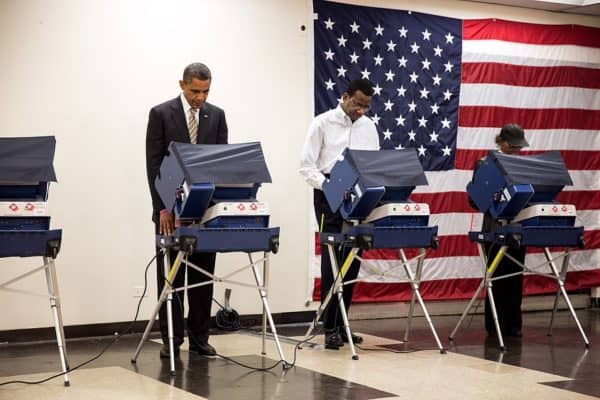
 Are people generally happy with their decision to vote —or to abstain from voting— in elections? New research from the University of Montreal says that by a large margin, those who do vote are satisfied with their decision, while those who don’t vote often regret it.
Are people generally happy with their decision to vote —or to abstain from voting— in elections? New research from the University of Montreal says that by a large margin, those who do vote are satisfied with their decision, while those who don’t vote often regret it.
Voting behaviour is conditioned by a multitude of factors that either prompt people to habitually cast their ballot or, as the case may be, to stay home and forego the carrying out of their civic duty. Indifference to the political process is one issue, but so are “voter disgust” and alienation from the values and positions on offer by candidates. Practical difficulties are at play, too, such as being able to make time to vote a as well as being physically capable of making it to the polling booth.
But new evidence suggests that not only is making it out to mark your X good for democracy (lending legitimacy to the whole process), it can actually make you feel good — and, conversely, not voting can be a bummer.
Published in the journal Party Politics, the study analyzed results from 22 surveys conducted across five countries (Canada, France, Germany, Spain and Switzerland) between 2011 and 2015 and involving almost 22,000 participants who were quizzed, post-election, about their choice to vote.
The results showed that an impressive 97 per cent of voters said that they were glad they made it to the polls, while a much smaller 60 per cent of abstainers reported being happy that they stayed away.
“This is an encouraging result for those who are concerned with the recent turnout decline that has been observed in most western democracies,” say the study’s authors, researchers with the Department of Political Science at the University of Montreal. “This is consistent with the presence of a social norm according to which citizens have a moral duty to participate in elections; at least some of those who do not follow the norm have doubts about the wisdom of their choice.”
Turnout rates vary widely across the globe, with countries like Belgium and Australia where voting is mandatory regularly getting over 90 per cent of eligible voters out to the polls. Other nations aren’t quite so lucky: turnout in the United States typically hovers around the 60 per cent mark, while Canada’s rate is a little higher, with the 2015 federal election bringing out almost 69 per cent of eligible Canadians, the highest turnout since 1993.
Demographically, the study found that older respondents were more confident about their choice to vote or not vote than younger respondents and that women voters are more likely than their gender counterparts to own up to regretting their decision. And while better educated respondents were more content with their decision to vote than the less educated, they were no more satisfied about abstention than the less educated.
The surveys also questioned voters about their decision in light of whether or not their chosen candidate and party actually won the election. Unsurprisingly, being primed to think about the results made those who voted for the loser declare more often that they were unhappy with their decision to vote.
Leave a Reply
You must be logged in to post a comment.




 Share
Share Tweet
Tweet Share
Share




Comment